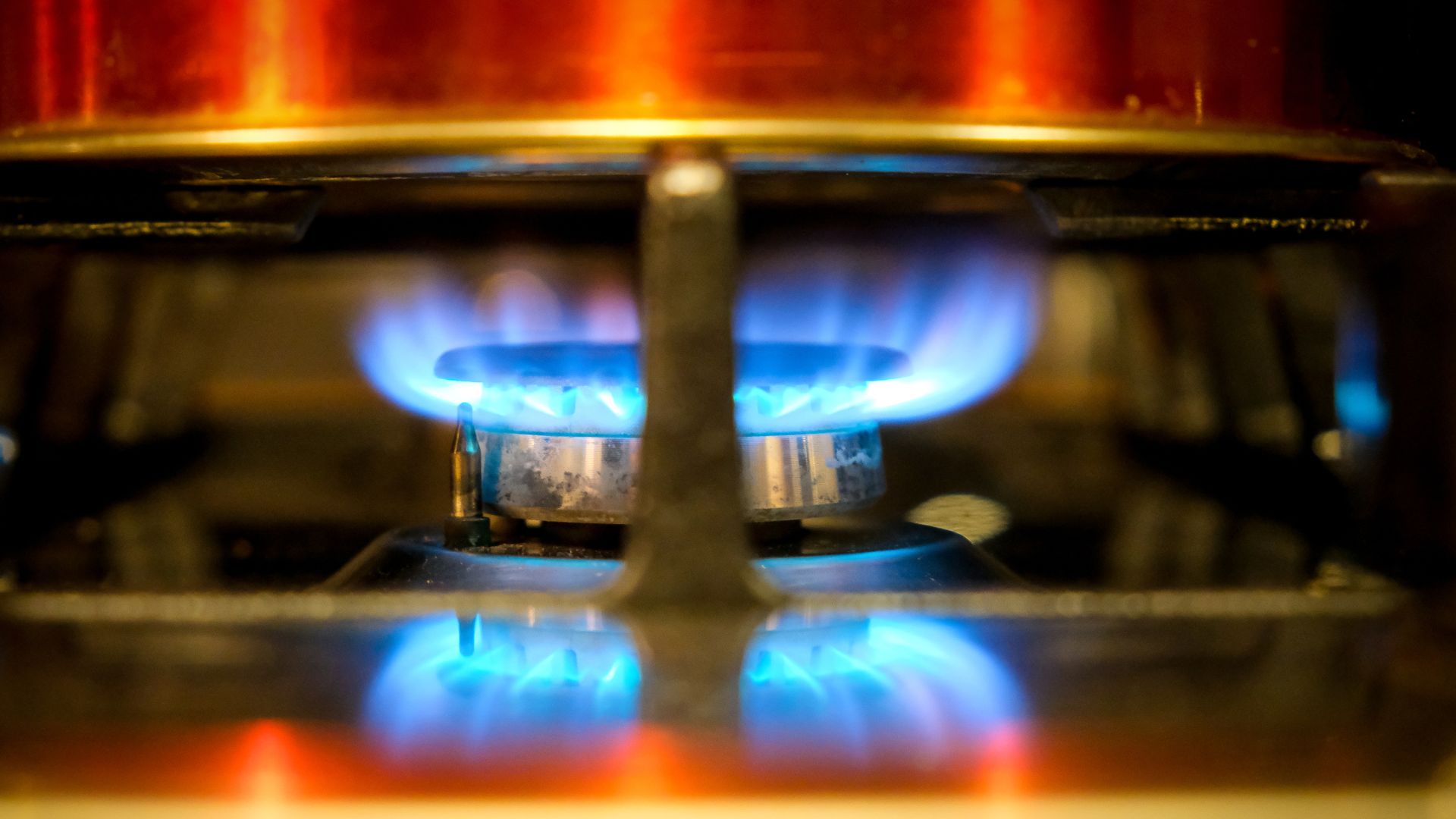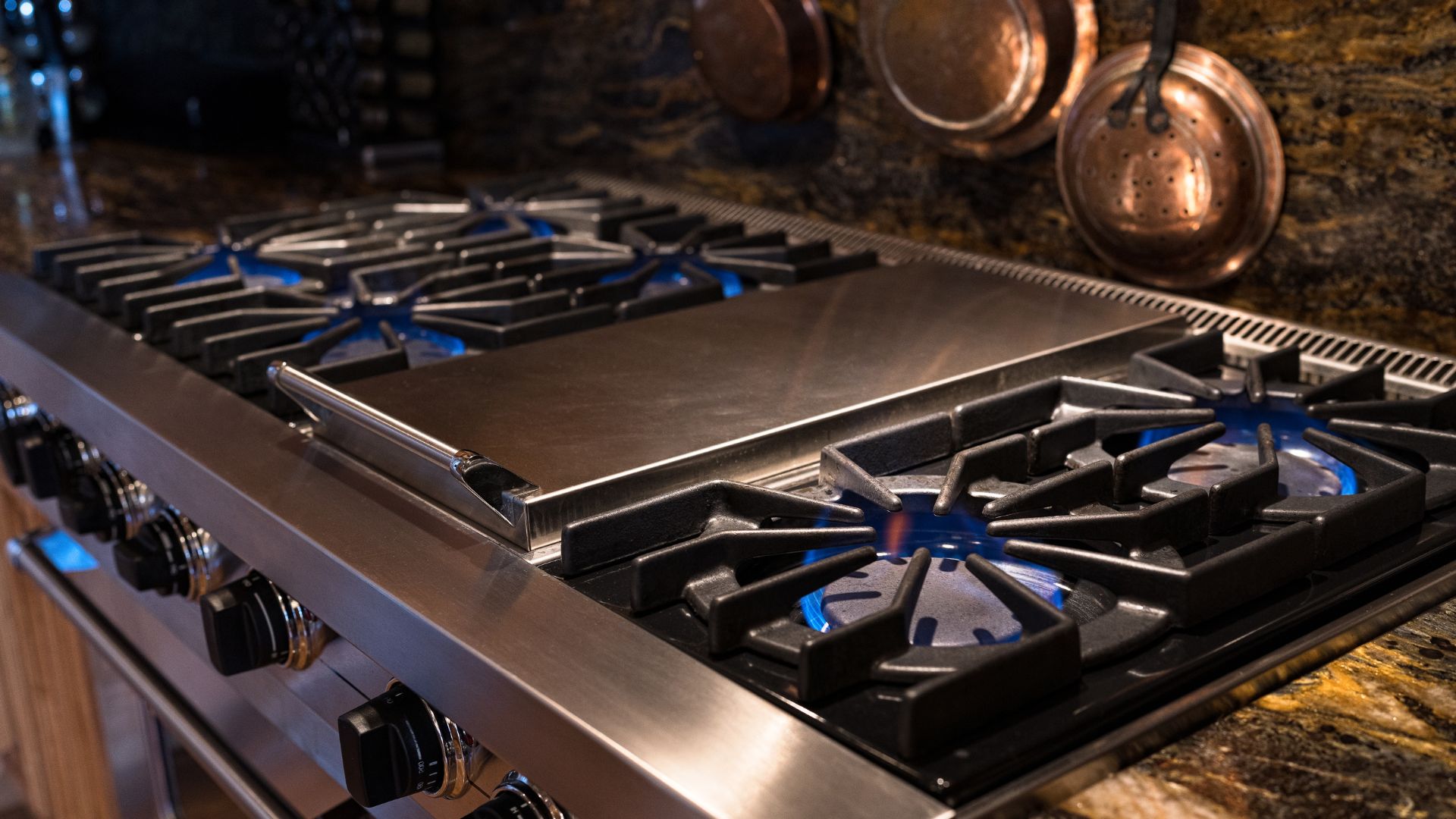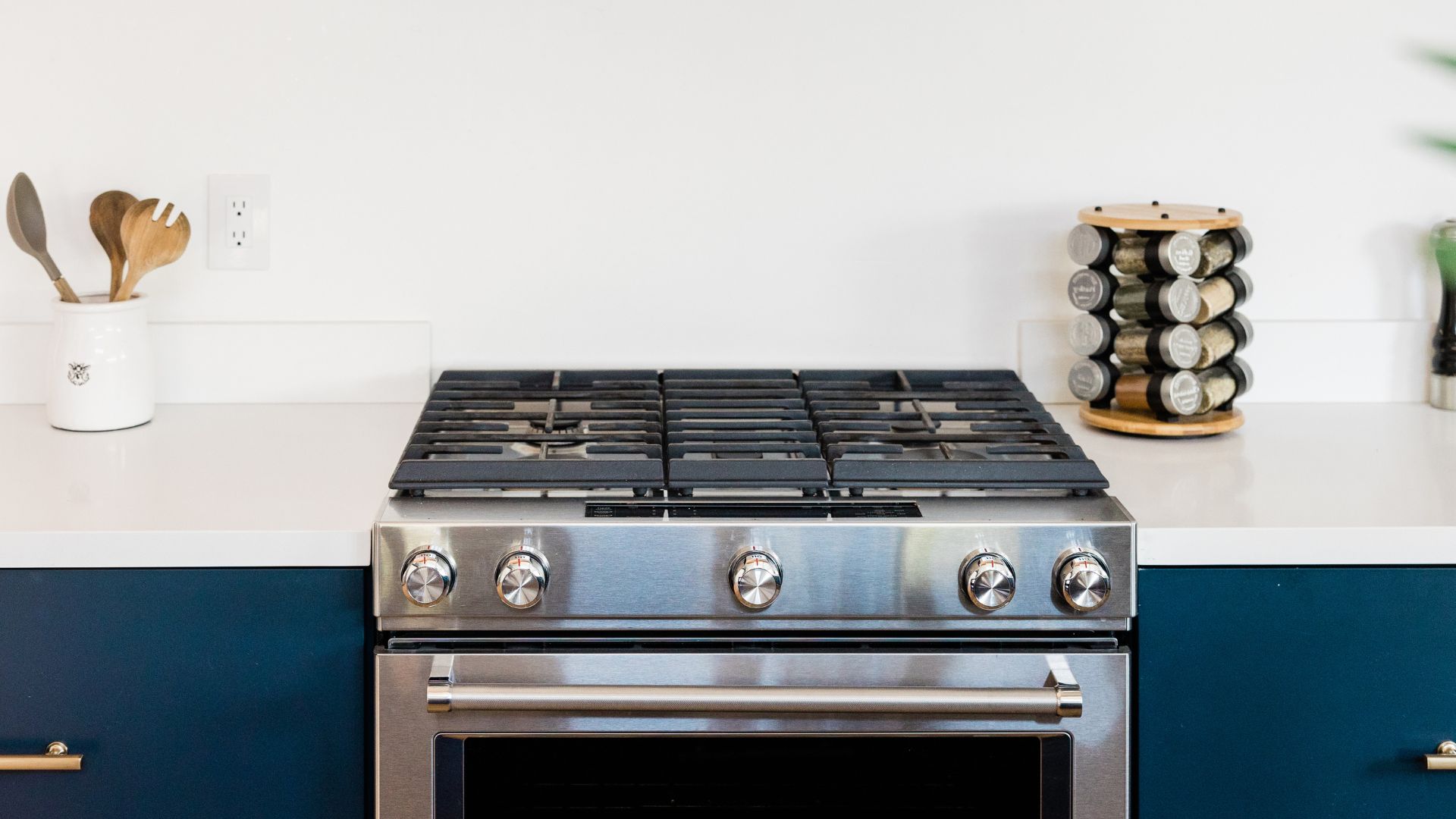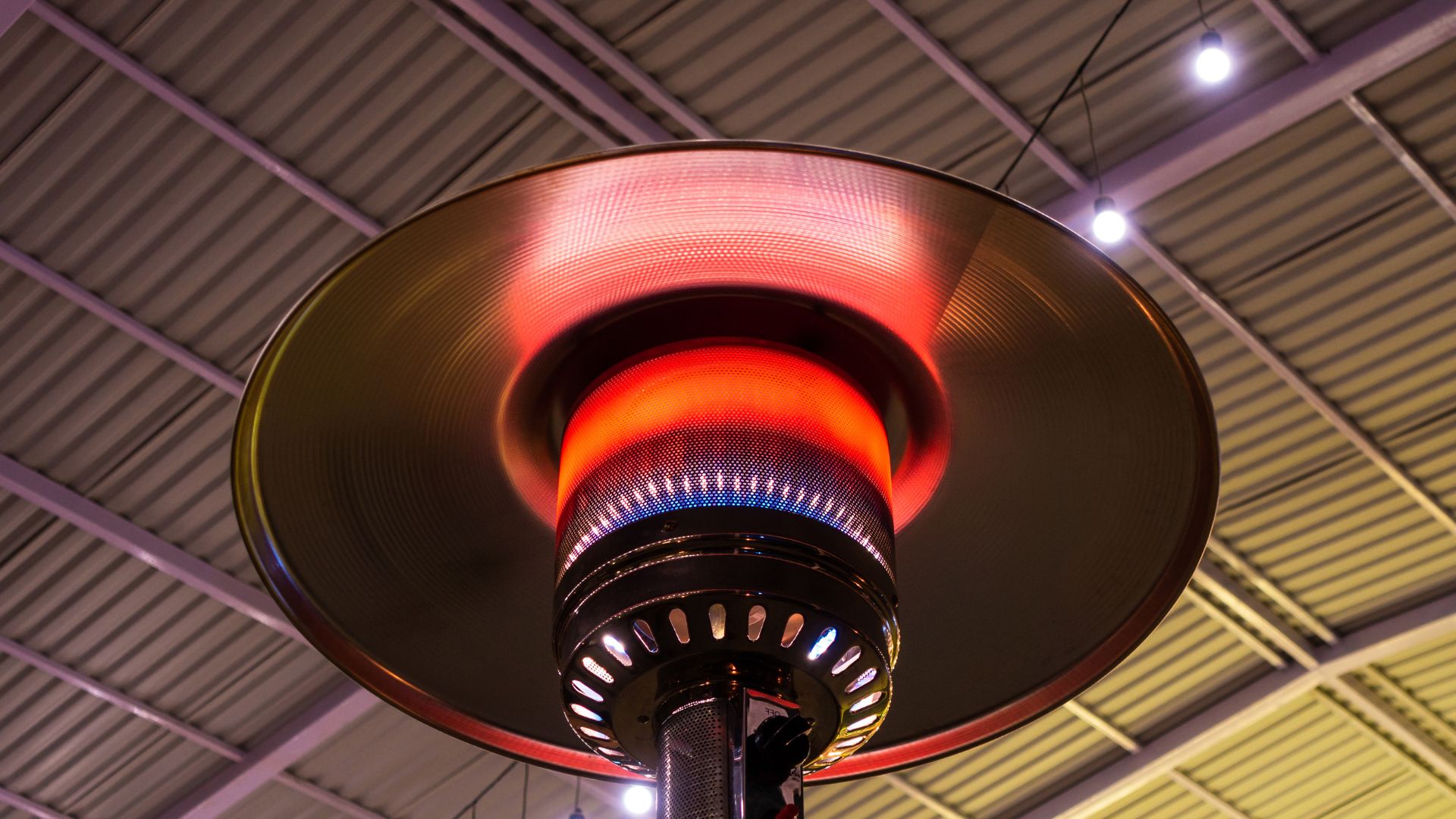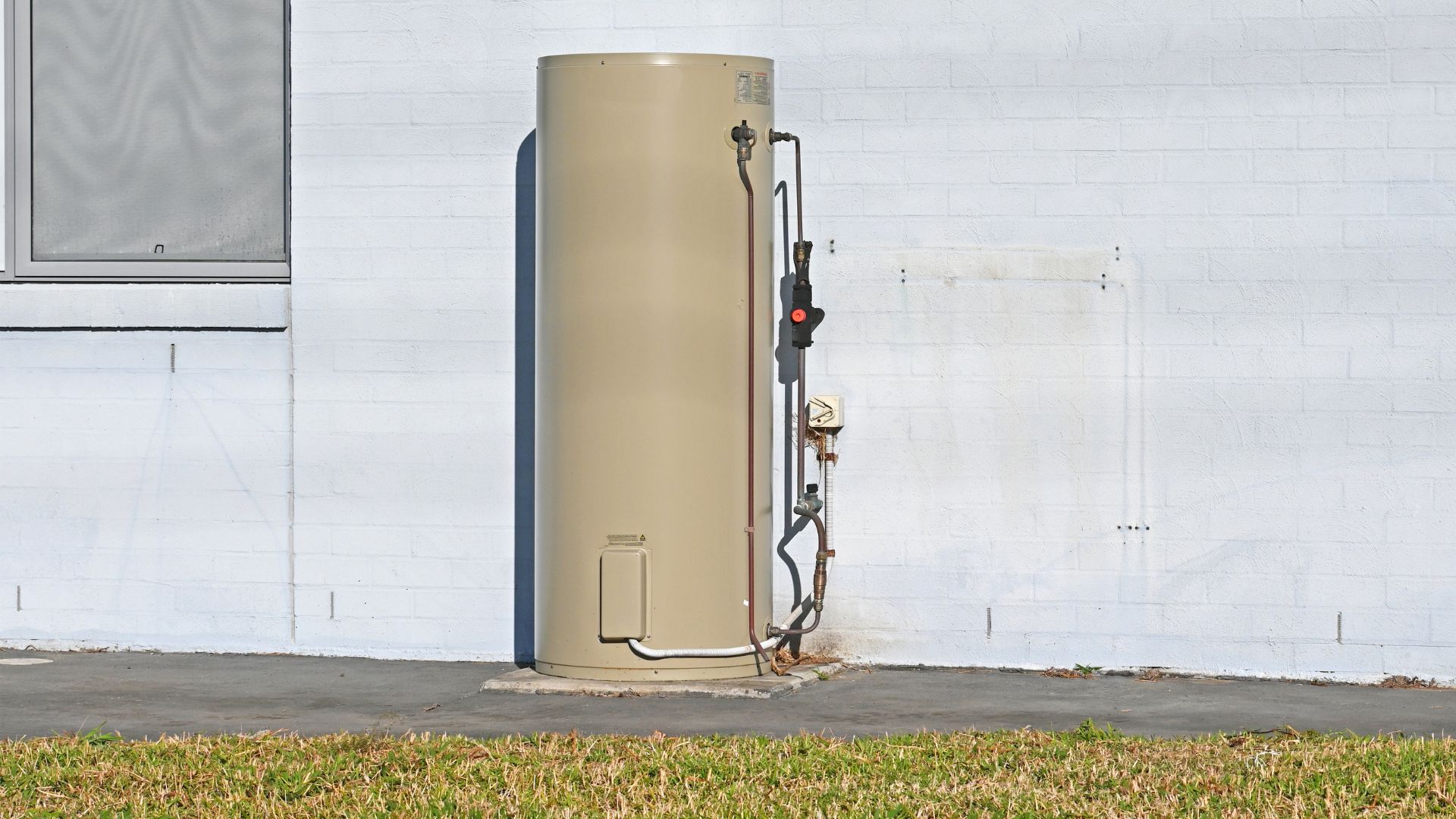Choosing Gas Appliances: Essential Home Guide
Did you know that natural gas appliances can reduce household energy costs by up to 30% compared to their electric counterparts? This highlights the growing appeal of gas-powered appliances in homes nationwide. As energy prices continue to rise, more homeowners are turning to gas appliances for their efficiency, cost-effectiveness, and environmental benefits.
However, selecting the right gas appliances for your home involves carefully considering various factors. This guide will walk you through the essential aspects of choosing gas appliances, from understanding different types and their applications to evaluating energy ratings and installation requirements.
We’ll explore the pros and cons of gas-powered options, discuss safety considerations, and provide expert tips to help you make informed decisions that align with your household needs and budget.
Types of Gas Appliances for Home Use
Gas appliances offer Australian homes a range of efficient and cost-effective cooking, heating, and more options. Let’s explore the various types of gas appliances available for residential use.
Gas Cooktops and Ranges
Gas cooktops and ranges are popular for their instant heat control, even heat distribution, and durability. Compared to electric alternatives, they provide faster heating and cooling, lower operating costs, and better temperature precision, making them ideal for both novice and experienced cooks.
Gas Ovens
Gas ovens are highly valued for their ability to create a moist heat environment, making them excellent for baking and roasting. They offer quick preheating and consistent temperature, which helps deliver quality culinary results.
When it comes to choosing between convection and conventional gas ovens, convection ovens provide faster cooking and even browning, while conventional ovens are preferred for traditional recipes. Look for models with high star ratings for energy efficiency, though be aware that self-cleaning models may consume more energy.
Gas Water Heaters
Gas water heaters come in two main types: tank and tankless. Tank models store hot water and are suitable for large households, while tankless heaters provide on-demand hot water and are more space-saving. The right choice depends on factors such as the number of occupants, peak hot water usage times, and available space.
Gas Dryers
Gas dryers offer several advantages over electric dryers, including shorter drying times, gentler treatment of fabrics, and lower running costs. They use up to 50% less energy compared to electric models, which can lead to substantial annual savings on utility bills.
Look for features like moisture sensors, multiple heat settings, and lint filters to improve efficiency and ease of use.
Gas Fireplaces and Heaters
Gas fireplaces come in various types, including vented models that require a chimney or flue, ventless models that need no external venting, and inserts that fit into existing fireplaces. Gas space heaters are also available as portable or fixed options and often come with thermostat controls and safety shut-off features.
These appliances offer both efficiency and ambience, with realistic flame effects, zoned heating capabilities, and adjustable heat output to suit different preferences and needs.
Gas Barbecues and Outdoor Cooking Appliances
For outdoor cooking, gas barbecues come in built-in or portable options. Built-in barbecues are permanent features for outdoor kitchens, while portable models offer flexibility for different spaces and occasions. Many models include features like multiple burners, side burners for versatility, and rotisserie attachments for a complete cooking experience.
To ensure safe and effective use, it’s important to clean the burners and grills regularly, provide proper ventilation in covered areas, and secure all gas connections.
Factors to Consider When Choosing Gas Appliances
Selecting the right gas appliances for your home involves carefully considering several vital factors. Here’s what you need to keep in mind when making your decision:
Energy Efficiency
Understanding energy star ratings is crucial for making informed choices. The more stars an appliance has, the more energy-efficient it is. This translates to long-term cost savings on your energy bills. Energy-efficient gas appliances also reduce environmental impact, contributing to lower greenhouse gas emissions.
Size and Capacity
Matching appliance size to household needs ensures optimal performance and efficiency. Consider the available space in your home and how the appliance will fit into your existing layout. Future-proofing your choices means selecting appliances that can accommodate potential changes in your household size or usage patterns.
Installation Requirements
Gas line availability and capacity are essential considerations. Some homes may require upgrades to existing gas lines or new installations. Ventilation needs vary depending on the appliance type and location. Professional installation is often necessary for safety and warranty purposes, while DIY options may be limited to more straightforward appliances.
Safety Features
Automatic shut-off mechanisms are crucial safety features in gas appliances. Carbon monoxide detectors and gas appliances should be installed in homes to alert residents of potential leaks. Child safety locks and controls provide extra protection for households with young children.
Maintenance and Durability
The lifespan of gas appliances varies, but proper maintenance extends their useful life. When choosing an appliance, consider the ease of cleaning and upkeep. Check the availability of spare parts and servicing options in your area to ensure long-term support for your chosen appliances.
Cost Considerations
Compare the initial purchase price with potential long-term savings from energy efficiency. Installation costs can vary significantly depending on the appliance and your home’s existing setup. Research potential rebates and incentives offered by government or energy providers for energy-efficient gas appliances, as these can offset upfront costs.
Pros and Cons of Gas Appliances
When considering gas appliances for your home, it’s important to weigh their advantages and disadvantages. Here’s a balanced look at the pros and cons:
Advantages
Gas appliances offer precise temperature control, which is particularly beneficial for cooking. This accuracy allows for better culinary results and more efficient energy use. Operating costs are typically lower than electric alternatives, resulting in long-term savings on utility bills. Gas appliances also boast faster heating and cooling times, enhancing convenience and efficiency in daily use.
Gas appliances often continue to function during power outages, providing essential services when electricity is unavailable. Furthermore, gas appliances have the potential for a lower carbon footprint, mainly when used with renewable natural gas sources.
Disadvantages
Some gas appliances have higher upfront costs, which can deter budget-conscious consumers. Proper ventilation and safety measures require additional consideration during installation and use. There’s always a potential for gas leaks, necessitating vigilance and regular maintenance to mitigate associated risks.
Gas appliances rely on a consistent gas supply, making users vulnerable to price fluctuations in the gas market. In areas without natural gas infrastructure, options for gas appliances may be limited, restricting choices for some homeowners.
Evaluating Your Home’s Gas Supply
Before installing new gas appliances, evaluating your home’s gas supply capacity is crucial. This assessment ensures your system can handle additional appliances safely and efficiently.
Start by assessing the existing gas connections in your home. Identify the location, type, and capacity of current connections. Understanding gas pressure requirements is essential for proper appliance function. Different appliances may require varying pressure levels, which your gas supply must accommodate.
Calculate the total gas consumption for all existing and planned appliances. This helps determine if your current supply can handle the increased load. Consider the potential expansion of gas appliance usage in your home to avoid needing costly upgrades later.
Consulting with a licensed gas fitter is highly recommended for a professional evaluation. They can assess your current setup, identify potential issues, and provide expert advice on necessary upgrades or modifications to ensure your home’s gas supply meets safety standards and performance requirements.
Safety Considerations for Gas Appliances
Safety is paramount when using gas appliances in your home. Regular maintenance and inspections ensure all gas appliances function correctly and safely. Schedule annual check-ups with a licensed professional to detect and address potential issues early.
Recognising signs of gas leaks or faulty appliances is crucial. Be alert for unusual odours, hissing sounds, or visible damage to appliances or gas lines. Proper ventilation is vital for different gas appliances, particularly those that produce combustion gases. Ensure your home has adequate ventilation systems in place.
Installing and maintaining carbon monoxide detectors is non-negotiable. Place detectors near sleeping areas and check them regularly to ensure they’re functioning correctly. Educate all family members on gas appliance safety, including how to recognise warning signs, what to do in case of a suspected leak, and the importance of proper appliance use. This knowledge can prevent accidents and save lives in emergencies.
Making the Right Choice: Expert Tips
Choosing the right gas appliances requires careful consideration and research. Start by comparing different brands and models, focusing on features that align with your needs. Use online resources to read customer reviews and seek recommendations from trusted sources.
Visiting showrooms allows you to see appliances in person, giving you a better sense of their size, design, and functionality. This hands-on experience can be invaluable in making an informed decision.
When evaluating options, consider warranty terms and after-sales support. A comprehensive warranty and reliable customer service can save you hassle and expenses down the road.
Balance upfront costs with long-term benefits, including energy efficiency and durability. While a cheaper option might seem attractive initially, investing in a higher-quality appliance often pays off over time.
For complex installations, seek professional advice. A qualified gas fitter can provide insights on compatibility, safety requirements, and potential challenges specific to your home’s setup.
Embracing the Future of Gas Appliances
The landscape of home gas appliances is evolving rapidly, with new technologies enhancing efficiency and user experience. Smart gas appliances with Wi-Fi connectivity and mobile app control are becoming increasingly popular, offering convenience and improved energy management.
Manufacturers are also developing hybrid appliances combining gas and electric power benefits. As the push for cleaner energy continues, the gas appliance industry is exploring ways to incorporate renewable natural gas and hydrogen blending.
Choosing the right gas appliances for your home is a significant decision that can impact your comfort, energy bills, and safety for years. At The Plumbing Lifesaver, we understand the complexities of gas appliance selection and installation. Our licensed gas fitters in Newcastle, Maitland, Lake Macquarie, Cessnock, and Port Stephens are ready to assist you with expert advice, professional installation, and ongoing maintenance services.
Don’t leave your gas appliance needs to chance – contact The Plumbing Lifesaver today to ensure your home is equipped with safe, efficient, and ideally suited gas appliances.
